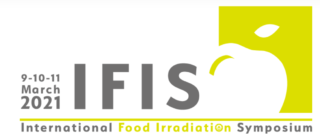France reveals results of unordered seeds investigation
A probe in France into people receiving seeds from Asia that they did not order has found it was likely an online scam.
In summer 2020, people in many countries, including France, reported getting parcels containing packets of seeds. They appeared as if they had been shipped from China, Taiwan or Singapore.
Officials were concerned as due to their unknown origin, the seeds could pose a risk of introducing organisms harmful to plants or invasive exotic plant species.
The United States, Canada, India, Israel, Brazil, Japan, Ireland, Germany, Australia, the United Kingdom and Finland were some of the countries affected. In the U.S., the number of seed packages that entered the country is not known but reports were received from all 50 states.
The European Commission called on member states to be vigilant and encouraged them to carry out investigations. In France, the inquiry was led by the National Veterinary and Phytosanitary Investigation Unit (BNEVP).
French findings
The BNEVP collected more than 100 cases where people received seeds that they had not previously ordered but added the true figure is unknown.

Most seeds were packed in sealed plastic bags with the words “Made in China” or other printing in Asian languages. However, the plant species are common in Europe with no invasive exotic types found during the checks. Laboratory analyzes on some of the seeds collected did not reveal the presence of regulated pests.
The Finnish Food Authority (Ruokavirasto) reported that seeds were studied in Denmark and traces of genetically modified material were found in some of them.
In October 2020, Brazilian authorities said seeds packages also came from Malaysia and Hong Kong. The Ministry of Agriculture, Livestock and Supply (MAPA) received more than 250 packs from people in the country. Analysis found live mites, the presence of three different types of fungi and two samples contained bacteria, which was yet to be identified.
Packages with seed bags had a low market value and the weight was generally less than 200 grams, according to French authorities. They arrived mainly from Asia via airports in northern Europe before getting to France and being sent to individuals by various private operators. According to the package labels, contents were often listed as jewelry or toys.
Officials believe it is an internet “brushing scam,” where sellers send unsolicited items to unsuspecting consumers and then post false reviews to boost sales.
The current hypothesis of how European addresses were targeted is the sale of mailing lists by Internet platforms following purchases made over the web.
Authorities advised people who had received unordered seed bags to not plant them. Instead, place them in a hermetically sealed plastic bag before throwing it in the household waste bin.
Food irradiation findings
Meanwhile, the French General Directorate for Competition Policy, Consumer Affairs and Fraud Control (DGCCRF) has published results of checks on ionization, a treatment that can reduce microorganisms in certain foods. The exercise found a decline in the use of this process on food.
 One form of food irradiation is physical treatment of food with high-energy ionizing radiation. It is only authorized for certain foodstuffs which must mention such treatment on the label to inform the consumer.
One form of food irradiation is physical treatment of food with high-energy ionizing radiation. It is only authorized for certain foodstuffs which must mention such treatment on the label to inform the consumer.
France has five sites approved to treat foodstuffs and food ingredients. Only one unit carried out this work in 2019 on nearly 180 tons of frozen frog legs.
The rate of non-conformities was less than 5 percent. A total of 128 food samples were taken at different stages of the supply chain and six were non-compliant including artichoke-based food supplements, frog legs and spice mixtures.
Investigations with importers and sellers of exotic products, tea and spices revealed that some ignore the regulations and do not have documents on possible irradiation of the products they market. Food businesses also rarely check if this treatment was performed on their raw materials.
Following the controls, one importer re-labeled products and put in place steps to find ionizing treatment during internal checks. Another issued a recall of products following notification of non-compliance.
Finally, IBA, Aerial and Bühler have organized an online symposium on food irradiation between March 9 and 11. The International Food Irradiation Symposium is supported by the International Irradiation Association and International Atomic Energy Agency (IAEA).
(To sign up for a free subscription to Food Safety News, click here.)